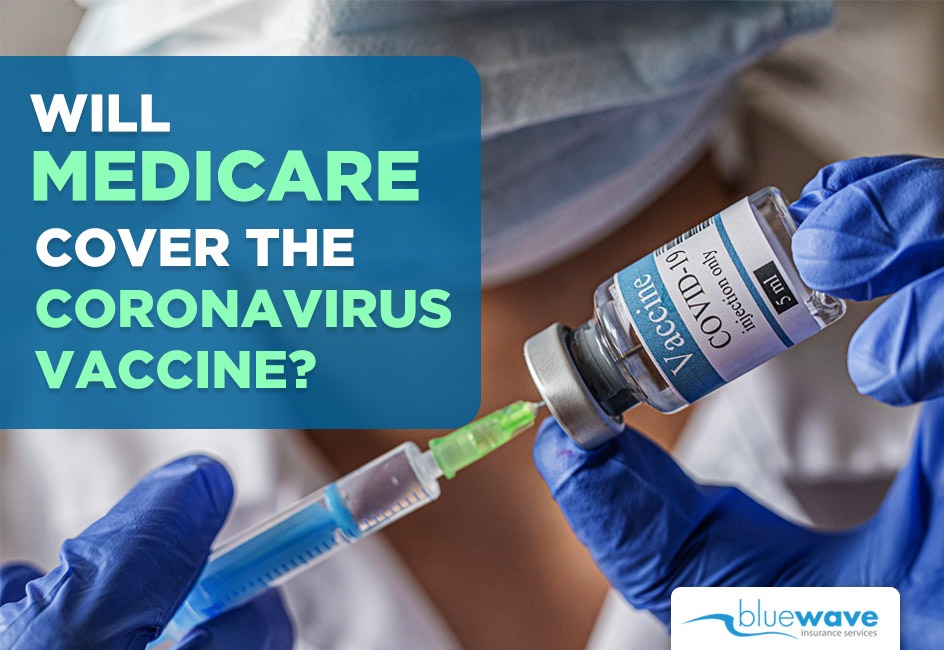
As 2021 moves forward, the Coronavirus vaccines are becoming more widely available. Many healthcare providers are already distributing vaccines, and due to their novelty, many are wondering about coverage details. Medicare has been covering a lot of medical needs related to COVID as the pandemic has progressed. The vaccine will continue this trend.
Although Medicare will cover the vaccine, there are still details to be aware of. The different types of Medicare won’t cover the vaccine in the same way. There are also relevant questions related to the applicability of Medicare Advantage and Supplement plans. We’ll run through all of the details as they apply to each part of Medicare, so you can know exactly what to expect.
How Many Vaccines Are There?
For now, two vaccines are available. Medicare will treat both the Moderna vaccine and Pfizer-BioNTech vaccines in the same way, so what you read below applies to either form of vaccine that you may receive. If another vaccine becomes available, it will likely follow suit, but there’s no way to know for sure.
Original Medicare and Vaccination
Original Medicare refers to Parts A and B of Medicare. Most individuals with Medicare have Original Medicare, and most of what you find online about Medicare is related to it. If you automatically enrolled in Medicare during your Initial Enrollment Period when you turned 65, then you have Original Medicare.
Although Original Medicare functions in a very standard way, Medicare Part A and Part B cover COVID vaccinations in slightly different ways. Let’s take a look at the details.
Medicare Part A Vaccination Coverage
Medicare Part A covers inpatient care, such as inpatient hospitalization, but also long-term nursing home care and some hospice care. If you receive a Coronavirus vaccination while you are an inpatient at a hospital or other facility, then Medicare Part A will usually cover it in full as a normal medically necessary expense.
However, the situation is a bit different if you only have Part A, but aren’t an inpatient when you get the vaccine. Ordinarily, Part A wouldn’t cover this, because Part A is intended to only provide inpatient coverage. However, Part A will still cover the cost of your Coronavirus vaccination.
There is one slight complication. Some healthcare providers and pharmacies may charge an additional administration fee when you get your vaccine. If you only have Medicare Part A and not Part B, then you’ll have to pay this fee. If you call the pharmacy or provider, they should be able to tell you if they charge this fee beforehand, as well as how much it comes out to.
Vaccination Coverage Under Medicare Part B
Medicare Part B covers many of your most common healthcare needs, including doctor visits and other forms of outpatient care. Coverage for the COVID-19 vaccine is very simple under Medicare Part B: you pay nothing, under any circumstances. If you are enrolled in Medicare Part B, you won’t have to pay anything at all for your vaccine, period. Unlike Part A, there is no possible administration fee that can be added on.
What About Medicare Advantage Plans?
In addition to Original Medicare, many beneficiaries get coverage through Medicare Advantage, or Part C. Part C of Medicare allows beneficiaries to receive Medicare coverage through a private insurance company, rather than the federal government.
Like Part B, vaccination under Medicare Advantage is very simple: they will cover everything. If you have Medicare Advantage, you won’t have to pay anything for your vaccine: no out-of-pocket costs or administration fees.
Does Part D Come Into the Picture?
Medicare Part D covers prescription drug costs. You can only by Part D plans privately, just like Part C. Although Medicare Part D is an important thing to keep in mind and very useful under most circumstances, it won’t provide you with any coverage related to vaccination.
Can Medigap Help?
Because most beneficiaries will be able to get the Coronavirus vaccine without paying any out-of-pocket costs, Medigap plans, or Medicare Supplement plans, can seem irrelevant. These plans offer coverage for a variety of out-of-pocket costs, such as your coinsurance and copayments.
Although it may seem like the additional possible charge under Part A falls into this category, it is an administration fee, not a type of cost-sharing fees like a coinsurance, deductible, or copay. For this reason, Medigap plans won’t pay for the vaccine administration fee.
How Can The Situation Change?
During the pandemic, things have often changed very quickly. Although the vaccine is now available, things may continue to change. In particular, you may wonder what will happen if researchers announce a new vaccine: how can you be sure that you have coverage?
The Centers for Medicare & Medicaid Services has announced a lot of material related to the coronavirus vaccines and has issued protocols that ensure that their beneficiaries can be properly covered by vaccines that receive FDA approval. Although the details can get complicated and nobody can predict exactly what will happen, you can expect CMS to issue coverage guidelines for any new vaccines that come out. And, you can expect that any FDA-approved vaccines will receive the same level of Medicare coverage.
Be Aware of an Increase in Vaccine-Related Scammers
In 2020, we saw an increase in the rates of Medicare fraud. This is when individuals try to contact Medicare beneficiaries to gather their Medicare information or make money off of them in other ways.
This hasn’t changed as the vaccine has rolled out. There are reports of scammers targeting beneficiaries with the promise of early access to the vaccine for payment, or requests for their Medicare information for reasons related to vaccine administration.
Never give your information to anybody claiming to be CMS who contacts you over the phone, e-mail, or text. You cannot pay to get quicker access to the vaccine, and you will pay nothing if you are enrolled in Medicare.
How Can I Get A Test Under Medicare?
In addition to covering vaccination, Medicare will also cover testing. If you need a test, Medicare will cover it. This coverage also extends to antibody testing, as well as monoclonal antibody treatment.
For more information about current public health guidelines regarding coronavirus, you can visit CDC.gov/coronavirus.
Key Things to Keep in Mind
Although it can be hard to understand some parts of Medicare, thankfully this isn’t one of them. Coverage for vaccination is simple: if you have Medicare, it’s free. The main things to keep in mind are that Part D and Medigap won’t come into the picture and that you may have to pay an administration fee if you have Part A without Part B. Otherwise, coverage should be simple and you should expect to pay nothing out-of-pocket.
Alex Wender is the founder and CEO of Bluewave Insurance. He has been blogging about Medicare-related topics since 2010. Since then, he and his agency have helped thousands of people across the country choose the right Medicare to fit their needs.

